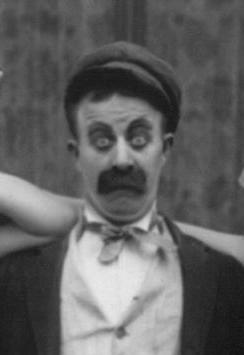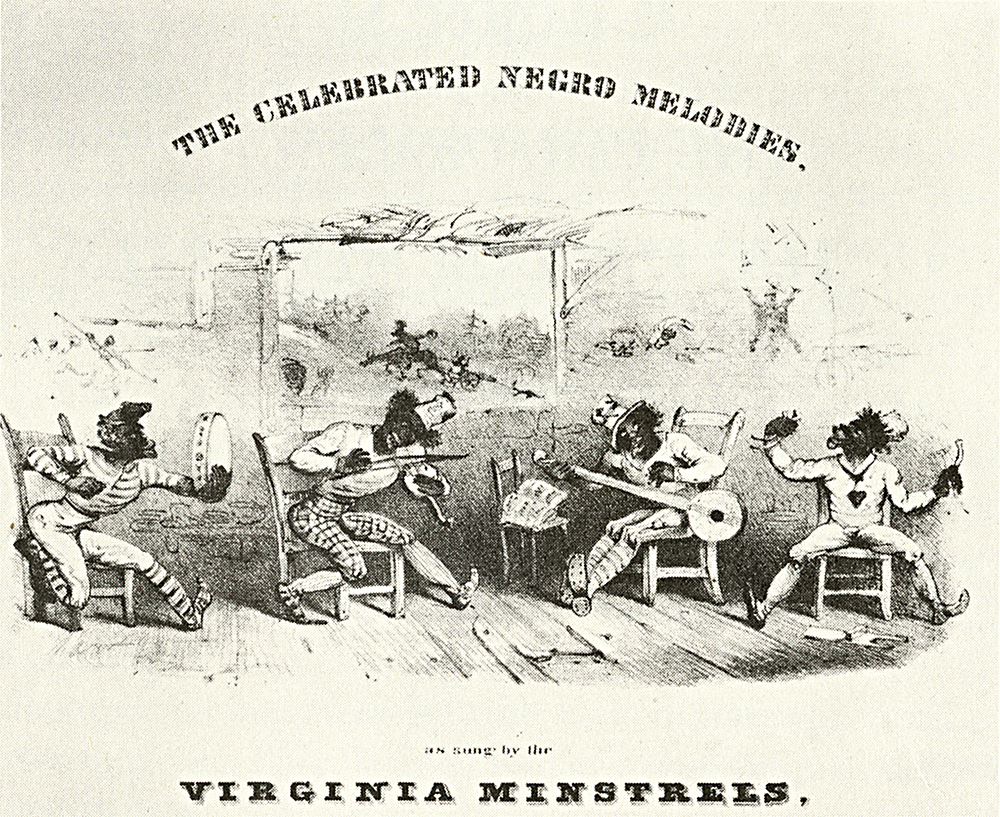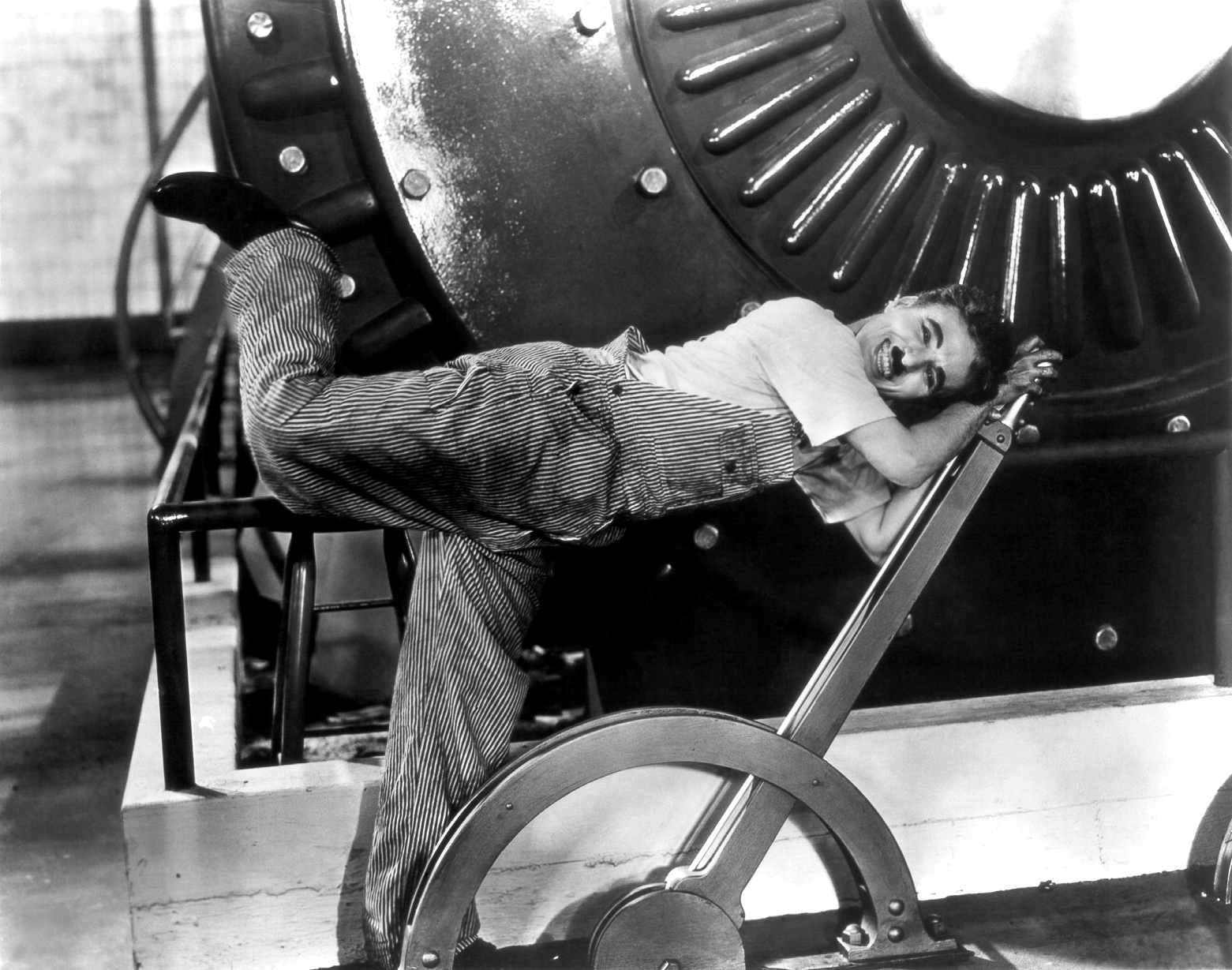|
Chester Conklin
Chester Cooper Conklin (January 11, 1886 – October 11, 1971) was an early American film comedian who started at Keystone Studios as one of Mack Sennett’s Keystone Cops, often paired with Mack Swain. He appeared in a series of films with Mabel Normand and worked closely with Charlie Chaplin, both in silent and sound films. Early life Conklin was born in Oskaloosa, Iowa. One of three children, he grew up in a violent household. When he was eight, his mother was found burned to death in the family garden. Although first judged a suicide, his father, a devoutly religious man who hoped his son would be a minister, was eventually charged with murder, but found not guilty at trial. Conklin won first prize when he gave a recitation at a community festival. A few years later, he ran away from home after vowing to a friend he would never return, a promise he kept. Heading to Des Moines he found employment as a hotel bellhop, but then moved to Omaha, Nebraska, where his interest in ... [...More Info...] [...Related Items...] OR: [Wikipedia] [Google] [Baidu] |
Oskaloosa, Iowa
Oskaloosa is a city in, and the county seat of, Mahaska County, Iowa, United States. In the late nineteenth and early twentieth century, Oskaloosa was a national center of bituminous coal mining. The population was 11,558 in the 2020 U.S. Census, an increase from 10,938 in 2000. History Oskaloosa derives its name from Ouscaloosa who, according to town lore, was a Creek princess who married Seminole chief Osceola. A local tradition was that her name meant "last of the beautiful." (This interpretation of "last of the beautiful" is not correct. "Oskaloosa" in the Mvskoke-Creek language means "black rain," from the Mvskoke words "oske" (rain) and "lvste" (black). "loosa" is an English corruption of the Mvskoke word "lvste". See for example the Wikipedia entry for Tuskaloosa, eponym of the town of Tuscaloosa, Alabama. In addition the Mvskoke word "Ouscaloosa" means "Black Water"). The first European-American settlers arrived in 1835, led by Nathan Boone, youngest son of frontie ... [...More Info...] [...Related Items...] OR: [Wikipedia] [Google] [Baidu] |
Minstrel Show
The minstrel show, also called minstrelsy, was an American form of racist theatrical entertainment developed in the early 19th century. Each show consisted of comic skits, variety acts, dancing, and music performances that depicted people specifically of African descent. The shows were performed by mostly white people wearing blackface make-up for the purpose of playing the role of black people. There were also some African-American performers and black-only minstrel groups that formed and toured. Minstrel shows caricatured black people as dim-witted, lazy, buffoonish, superstitious, and happy-go-lucky.The Coon Character , Jim Crow Museum of Racist Memorabilia, Ferris State University. Retrieved 29 January 2016.John Kenrick < ... [...More Info...] [...Related Items...] OR: [Wikipedia] [Google] [Baidu] |
Love, Speed And Thrills
''Love, Speed and Thrills'' is a 1915 American short comedy film produced by Mack Sennett, directed by Walter Wright, starring Mack Swain, Chester Conklin and Minta Durfee, and featuring Billy Gilbert, Charley Chase and the Keystone Cops in supporting roles. Plot summary ''Love, Speed and Thrills'' involves a loving husband and a wife-stealing wolf, both after the same woman. Cast *Mack Swain as Ambrose *Minta Durfee as Ambrose's Wife *Chester Conklin as Mr. Walrus *Billy Gilbert *Josef Swickard as Chief of the Keystone Kops *Charley Chase Charles Joseph Parrott (October 20, 1893 – June 20, 1940), known professionally as Charley Chase, was an American comedian, actor, screenwriter and film director. He worked for many pioneering comedy studios but is chiefly associated with pro ... External links * * 1915 films 1915 comedy films 1910s English-language films American silent short films American black-and-white films Films directed by Mack Sennett 1915 sh ... [...More Info...] [...Related Items...] OR: [Wikipedia] [Google] [Baidu] |
The Battle Of Ambrose And Walrus
''The'' () is a grammatical article in English, denoting persons or things that are already or about to be mentioned, under discussion, implied or otherwise presumed familiar to listeners, readers, or speakers. It is the definite article in English. ''The'' is the most frequently used word in the English language; studies and analyses of texts have found it to account for seven percent of all printed English-language words. It is derived from gendered articles in Old English which combined in Middle English and now has a single form used with nouns of any gender. The word can be used with both singular and plural nouns, and with a noun that starts with any letter. This is different from many other languages, which have different forms of the definite article for different genders or numbers. Pronunciation In most dialects, "the" is pronounced as (with the voiced dental fricative followed by a schwa) when followed by a consonant sound, and as (homophone of the archaic pro ... [...More Info...] [...Related Items...] OR: [Wikipedia] [Google] [Baidu] |
The Great Dictator
''The Great Dictator'' is a 1940 American anti-war political satire black comedy film written, directed, produced, scored by, and starring British comedian Charlie Chaplin, following the tradition of many of his other films. Having been the only Hollywood filmmaker to continue to make silent films well into the period of sound films, Chaplin made this his first true sound film. Chaplin's film advanced a stirring condemnation of Adolf Hitler, Benito Mussolini, fascism, antisemitism, and the Nazis. At the time of its first release, the United States was still formally at peace with Nazi Germany and neutral during what were the early days of World War II. Chaplin plays both leading roles: a ruthless fascist dictator and a persecuted Jewish barber. ''The Great Dictator'' was popular with audiences, becoming Chaplin's most commercially successful film. Modern critics have praised it as a historically significant film, one of the greatest comedy films ever made and an important ... [...More Info...] [...Related Items...] OR: [Wikipedia] [Google] [Baidu] |
Modern Times (film)
''Modern Times'' is a 1936 American part-talkie satirical romantic black comedy film written and directed by Charlie Chaplin in which his iconic Little Tramp character struggles to survive in the modern, industrialized world. The film is a commentary on the desperate employment and financial conditions many people faced during the Great Depression — conditions created, in Chaplin's view, by the efficiencies of modern industrialization. The movie stars Chaplin, Paulette Goddard, Henry Bergman, Tiny Sandford and Chester Conklin. It is notable for being the last time that Chaplin portrayed the Tramp character and for being the first time Chaplin's voice is heard on film. In 1989, ''Modern Times'' was one of the first 25 films selected by the Library of Congress for preservation in the United States National Film Registry for being "culturally, historically, or aesthetically significant". In 2003, it was screened "out of competition" at the Cannes Film Festival. Plot The T ... [...More Info...] [...Related Items...] OR: [Wikipedia] [Google] [Baidu] |
Making A Living
''Making a Living'' (also known as ''Doing His Best'', ''A Busted Johnny'', ''Troubles'', and ''Take My Picture'') is the first film starring Charlie Chaplin. A one-reel comedy short, it was completed in three days at Keystone Studios in Los Angeles, California and was released for distribution on February 2, 1914.Chaplin, Charles. ''My Autobiography''. New York: Simon and Schuster, pp. 143-144. In it Chaplin portrays a charming swindler who runs afoul of a news reporter and a Keystone Cop. In addition to co-writing the "scenario" and directing the production, Henry Lehrman performs as the principal supporting character. Plot In the film’s opening scene, Chaplin's character, the "Swindler", attempts to convince a passerby (Henry Lehrman) to give him money. Chaplin is next shown flirting with a young woman and proposing marriage to her, which she accepts. Lehrman, who portrays a news reporter, now approaches the woman and presents to her a bouquet of flowers and a ring, whic ... [...More Info...] [...Related Items...] OR: [Wikipedia] [Google] [Baidu] |
Mabel At The Wheel
''Mabel at the Wheel'' is a 1914 American motion picture starring Charles Chaplin and Mabel Normand, and directed by Mabel Normand and Mack Sennett. The film is also known as ''Hot Finish''. Plot Charlie offers Mabel a ride on his two-seater motorcycle, which she accepts in preference to his rival's racing car. Unfortunately, as they go over a bump, she falls off into a puddle. The rival, who has followed in his car, picks up the now stranded Mabel. He lets her drive, sitting tight beside her. Charlie at last notices she is gone and falls off the bike. He sees them together now stopped and standing beside the car. They leave the car for a short while and Charlie lets down the rear tyre. His rival returns and is furious. They throw rocks at Charlie and he throws them back. The rival's friend appears and gets caught up in the rock-throwing confusion. We cut to "The Auto Race" where Charlie hovers round the cars. The drivers usher him away when they see he has a sharp pin. Charlie ... [...More Info...] [...Related Items...] OR: [Wikipedia] [Google] [Baidu] |
Mabel's Busy Day
''Mabel's Busy Day'' is a 1914 short comedy film starring Mabel Normand and Charles Chaplin; the film was also written and directed by Mabel Normand. The supporting cast includes Chester Conklin, Slim Summerville, Edgar Kennedy, Al St. John, Charley Chase, and Mack Sennett. Synopsis Entrepreneur Mabel (Mabel Normand) tries to sell hot dogs at a car race. She bribes a policeman with one of her treats to gain access to the race course but does not do a very good business once she is inside. Meanwhile, Charlie tangles with another police officer but still crashes the gate. He is pursued by the policeman. Mabel sets down her box of hot dogs and leaves them unattended for a moment. Charlie finds the box and freely gives the hot dogs away to hungry spectators at the track. Mabel finds out that Charlie has stolen her box of hot dogs and sends the police after him. Chaos ensues. Reviews ''Motion Picture News'' commented, "Any comedy with Charles Chaplin and Mabel Normand as the leads ... [...More Info...] [...Related Items...] OR: [Wikipedia] [Google] [Baidu] |
Mabel's New Job
''Mabel's New Job'' is a 1914 film starring Mabel Normand and co-directed by Normand and George Nichols. The film is presumed lost. Cast *Mabel Normand *Chester Conklin *Charley Chase *Dave Anderson *Cecile Arnold *Dixie Chene *Alice Davenport *Dave Morris *Al St. John Al St. John (also credited as Al Saint John and "Fuzzy" St. John; September 10, 1892 – January 21, 1963) was an early American motion-picture comedian. He was a nephew of silent film star Roscoe "Fatty" Arbuckle, with whom he often performed o ... References External links *Madcap Mabel: Mabel Normand Website American silent short films [...More Info...] [...Related Items...] OR: [Wikipedia] [Google] [Baidu] |
Mabel's Strange Predicament
''Mabel's Strange Predicament'' is a 1914 American film starring Mabel Normand and Charles Chaplin, notable for being the first film for which Chaplin donned the costume of The Tramp, although his appearance in the costume in Kid Auto Races at Venice was released first. The film was directed by Normand and produced by Mack Sennett. Cast *Mabel Normand as Mabel *Charles Chaplin as The Tramp *Chester Conklin as Husband * Alice Davenport as Wife *Harry McCoy as Lover *Hank Mann as Hotel Guest * Al St. John as Bellboy Plot An inebriated Charlie annoys several hotel guest while sitting in the lobby. In her hotel room, Mabel is playfully tossing a ball to her dog. The noise disturbs Alice who occupies the room across the hall from Mabel. She informs Chester that she is going to the lobby to make a complaint to the manager. Not long after Alice leaves her room, Mabel accidentally locks herself out of her room while wearing only pajamas. Charlie happens by and tries to woo her. M ... [...More Info...] [...Related Items...] OR: [Wikipedia] [Google] [Baidu] |

.jpg)

.png)


